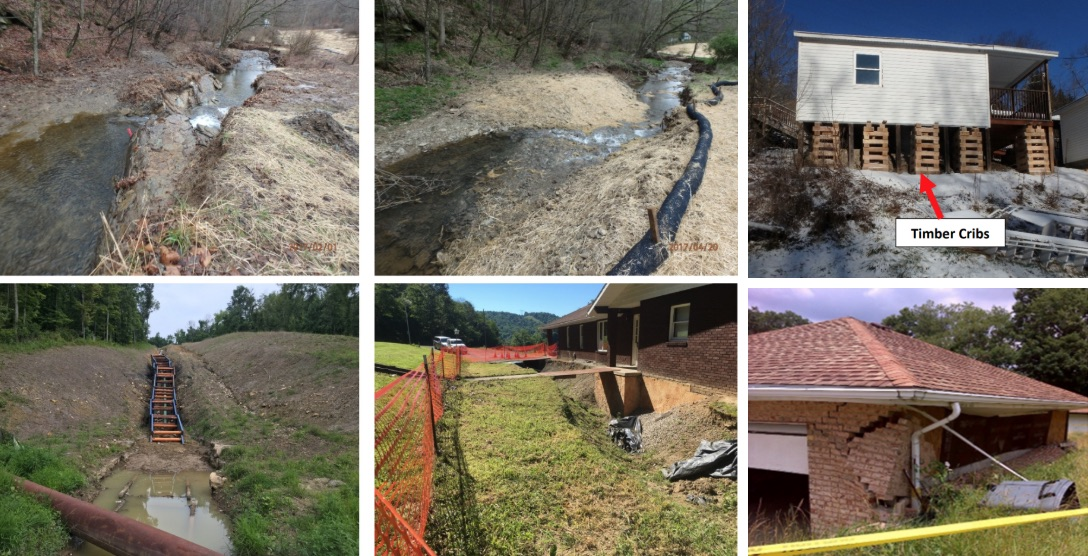
This is the 9th installment in our What’s on your mind? series and was written by CCJ Community Organizer Nick Hood.
The 5th assessment of ACT 54 (2013-2018), done by researchers from The University of Pittsburgh and the Carnegie Museum of Natural History, has again highlighted issues that arise with coal mining long after a coal seam has been mined out, inefficient data management by the PA Department of Environmental Protection (PADEP), insufficient testing of groundwater systems before and after mining, and the alarming amount of property that companies buy up before, during, and after mining that can have various negative impacts on local economies and tax bases. These are just a few of the multitude of issues that continue to revolve around underground coal mining. (For our analysis of the 5th Assessment of ACT 54, please check out our previous blog post on this topic.)
In the 4th assessment (2008-2013), the researchers suggested that the PADEP update their extremely inefficient and outdated data collection systems. Not only did PADEP fail to improve their data collection systems from the last assessment, but the agency actually reverted back to older and less efficient methods. By the end of the 4th assessment, the PADEP was sending the researchers computer spreadsheets of data, a recommendation that was made in the 3rd assessment (2003-2008). Then, toward the end of the 5th assessment, PADEP was again sending the researchers hard copies of data. This made the researchers’ job increasingly tedious and made clear the inefficiencies in PADEP’s data management practices. PADEP’s budget has been cut year after year, making it extremely difficult for them to upgrade and update their systems. We can thank our legislators for repeatedly failing to adequately fund the agency responsible for protecting and restoring Pennsylvania’s natural environment for these cuts.
Another highlight (or rather, lowlight) from the assessment was the insufficient testing of groundwater systems done by the coal company. The groundwater systems are only tested four times a year. Compare this to a surface stream that may be undermined, which will be tested numerous times for about a year before undermining occurs to roughly a year after mining has occurred. Groundwater systems support surface flow in a stream. Therefore, it makes sense that groundwater should be monitored at least as frequently as surface water flow pre- and post-mining. However, the vast majority of undermined streams are augmented with outside water. This means that water is being added to these streams from some outside source to help “restore” normal flow. This can bias data without treating the cause of the damages, and can help hide loss of water in groundwater systems. Technically, flow augmentation should be turned off for at least 24 hours before a coal company or any other permittee measures stream flow post-mining. We certainly hope they follow this procedure, but only the coal company or whomever they have handling their water tests is responsible for doing this.
Coal companies are buying up more and more properties where they are undermining. The researchers mention the negative impacts of this on their data and on communities and residents. Buying homeowners out removes people from the tax base. Damaged properties and water sources are driving the value of homes down, which also hurts the tax base and people’s investments. In addition, companies do not report damages to these properties. This effectively keeps much of the negative impacts of mining, as well as other useful information, from getting to the researchers, the assessments, and anyone concerned with the assessments, including taxpayers.
How long will we let these companies run roughshod over our communities? Mining could cause less environmental stress and could be monitored more efficiently if we actually followed the recommendations from these assessments. The coal companies are responsible for mitigating any damages due to mining. PADEP is responsible for enforcing Act 54, along with the Clean Streams Law and Article 1, Section 27 of the constitution. I think it’s clear that PADEP could use its authority to require companies to collect better pre-mining data so that we can more effectively mitigate damages post mining.
Coal companies are extracting more than just coal from our communities. They are systematically depleting the tax base, driving down homeowners’ property values, and are knowingly degrading our water sources. Let us make it easier for our community members to take care of their property, rather than making it easier for these coal companies and executives to benefit from our destruction.

